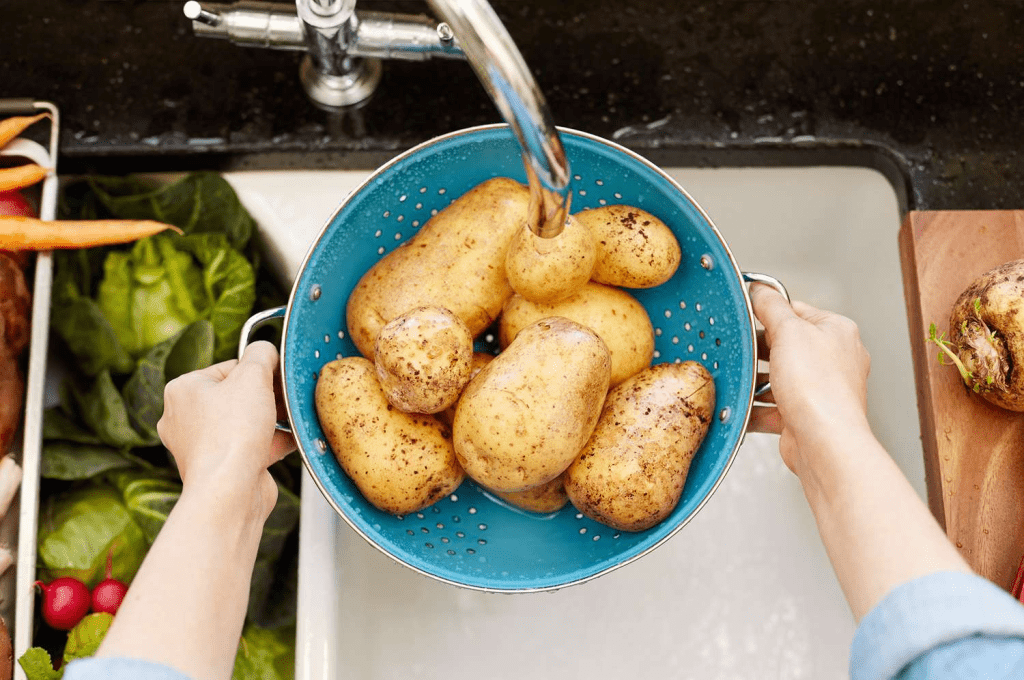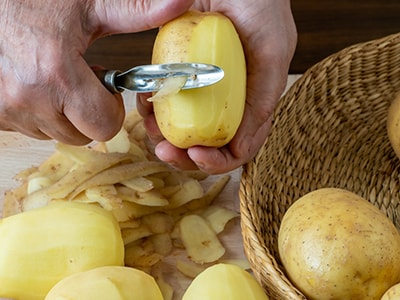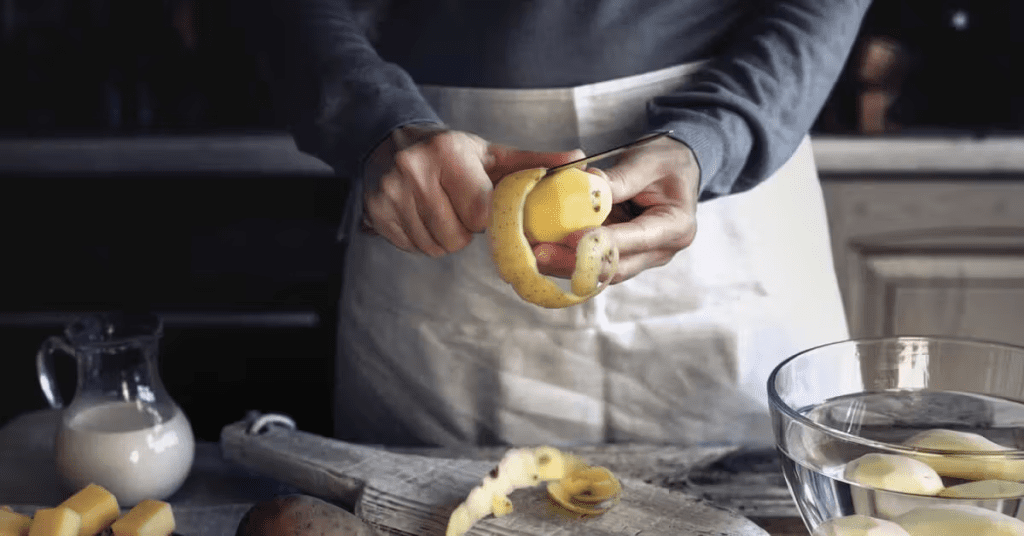Potatoes are a kitchen staple, showing up in everything from comforting mashed potatoes to crispy fries. But when it comes to prep, there’s one common question that keeps popping up: Do you really need to wash potatoes if you’re just going to peel them? Many people skip this step, assuming peeling will take care of any dirt, while others, like an insistent mother-in-law, argue that washing is essential. Who’s right? Let’s dive into the reasons behind washing potatoes before peeling and why this extra step might be more important than you think.
Why Washing Vegetables Is Essential

Washing vegetables isn’t just a matter of cleanliness—it’s about food safety. Whether it’s lettuce, carrots, or potatoes, rinsing off dirt, bacteria, and pesticides is standard practice for a reason. Even if we peel away the outer layer, contaminants can linger, potentially making their way onto our food. In the case of potatoes, which grow underground and come into contact with soil and bacteria, washing becomes even more critical. Not only does this step reduce the risk of foodborne illness, but it also ensures that what you’re cooking is as safe as possible for consumption.
The Dirt on Potatoes: Why They Need Extra Attention
Potatoes have their own unique cleaning needs because they grow directly in the soil, surrounded by dirt, bacteria, and a variety of other contaminants from the start. When they’re harvested, transported, and stored, potatoes continue to encounter potential contaminants. The outer skin often traps dirt, pesticides, and even bacteria that might not be visible to the naked eye. Peeling does remove the skin, but it doesn’t eliminate everything lingering on the surface—and that could pose a bigger issue than it seems.
Cross-Contamination Risks: How Skipping the Wash Can Spread Germs
One of the main reasons experts recommend washing potatoes, even if you plan to peel them, is to prevent cross-contamination. When you skip washing, the dirt and bacteria from the potato skin can easily transfer to your hands, knives, and surfaces. As you peel, those contaminants may also get onto the potato’s flesh, spreading germs across your kitchen. A quick rinse under running water, combined with a scrub, can prevent this risk, making your food prep area a safer space.
Health Risks: Bacteria, Pesticides, and Unseen Contaminants
So, why does it really matter if a little dirt makes its way into your food? Here’s the scoop: Potatoes can carry pesticides from farming practices, which are meant to keep pests away, not be consumed by humans. Even organic potatoes can harbor bacteria from the soil. If these contaminants aren’t washed off, they may transfer to the potato flesh during peeling or cooking, posing potential health risks.
Additionally, certain bacteria, such as Listeria or E. coli, can be found on unwashed produce. Although cooking typically kills bacteria, cross-contamination can still occur when handling other ingredients, putting you at risk of foodborne illness. Washing potatoes before peeling offers an extra layer of protection by reducing potential exposure to pesticides, bacteria, and other harmful residues.
Is It Really Necessary to Wash if You’re Peeling? Here’s What the Experts Say

Food safety experts are clear on this point: washing is advisable whether or not you plan to peel the potatoes. They argue that the risk of transferring dirt and bacteria to the edible part of the potato is high enough to make washing worthwhile. By giving your potatoes a quick wash, you reduce the chance of spreading bacteria or dirt to your cutting board, knife, and other ingredients. It’s a small step that contributes to a safer cooking environment.
This practice is especially important when handling any vegetables grown in soil, as they’re more susceptible to harmful bacteria. So, while peeling may remove the skin, washing first is a preventative measure that minimizes unintended health risks.
Generational and Cultural Views on Washing Potatoes
Interestingly, whether or not you wash potatoes can also depend on cultural or generational habits. Some families have always washed their potatoes before peeling, while others see it as an unnecessary extra step. In certain cultures, washing produce is seen as essential, even if it will be peeled later, whereas in fast-paced kitchens, this step may be skipped for efficiency. This divergence in practices can lead to well-meaning kitchen debates—perhaps with that mother-in-law who’s adamant about washing!
These traditions often shape our cooking routines more than we realize, influencing our ideas about food safety. However, as food safety guidelines evolve, science-based practices, like washing vegetables, are increasingly recommended by health experts to help protect against potential risks.
How to Properly Wash and Prepare Potatoes Before Peeling

If you want to keep things clean and safe in the kitchen, follow these steps for washing potatoes before peeling:
- Rinse Under Running Water: Hold each potato under cool running water to remove visible dirt. A quick rinse isn’t enough—ensure every potato gets a thorough wash.
- Use a Vegetable Brush: Gently scrub the potato’s surface with a vegetable brush. This helps dislodge dirt and bacteria that might be clinging to the skin.
- Avoid Soaking: While rinsing is essential, avoid soaking potatoes as it can make them absorb water, which affects texture and taste. A quick rinse and scrub will do the job.
- Dry the Potatoes: Pat the potatoes dry with a clean towel or paper towel before peeling. This reduces the risk of cross-contamination with water or soil residues.
These simple steps ensure that your potatoes are safe to handle, minimizing any potential food safety concerns.
The Final Word: Should You Wash Potatoes Before Peeling?
Although it might seem like an extra, unnecessary step, washing potatoes before peeling is a simple way to boost food safety in your kitchen. Potatoes often carry dirt, pesticides, and bacteria on their skins, which can transfer to the flesh when peeling. A quick rinse under running water, combined with a scrub, helps eliminate these contaminants, protecting you from health risks and making for a cleaner cooking experience.
So, maybe your mother-in-law has a point—washing potatoes isn’t just a habit; it’s a smart food safety measure supported by experts. Next time you’re prepping dinner, take a moment to rinse and scrub those potatoes. It’s a small step that brings big benefits, ensuring your food is clean, safe, and ready to be enjoyed.


